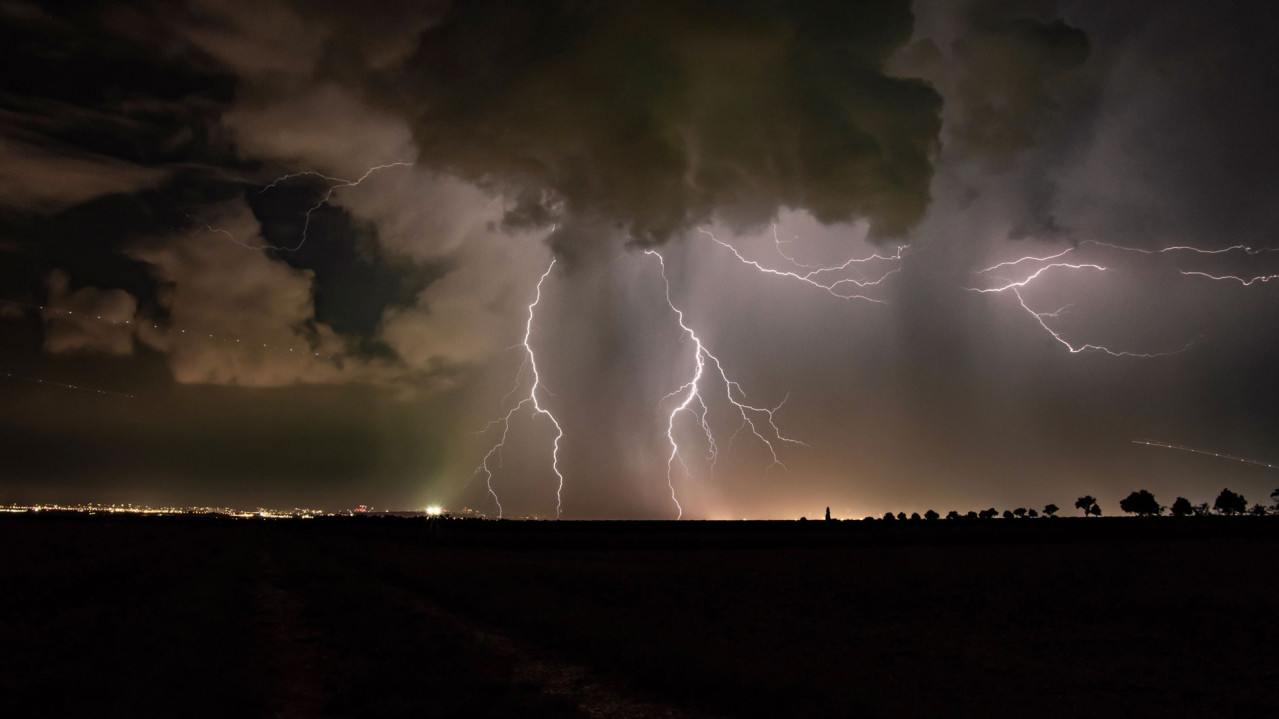
Summer Power Outages – How to Prepare Your Home | sonnen
Find out everything you need to know about preparing your home for summer power outages and why a home battery system with backup power is the best solution.
Blackouts have long been a regular fixture of the Australian summer but with increasingly extreme weather and an escalating energy crisis putting additional pressure on an already strained electrical grid, we can expect to see more outages, more often. Following a difficult winter, with the energy crisis deepening and this summer shaping up to be another sweltering one, parts of Australia are now at risk of unreliable power supply, resulting in the Australian Energy Market Operator (AEMO) calling for urgent action to keep supply secure.
What’s causing power outages in summer?
Traditionally, summer power outages in Australia have been caused by the annual wet season which regularly brings torrential rain and flooding. However, along with blackouts caused by the wet, we’re now experiencing more blackouts caused by the effects of the heat. This is not only caused by more homes running air conditioning to keep cool over summer – which puts greater pressure on the grid – but there’s also the direct impact of the heat physically reducing the ability of power lines to deliver the same amount of power.
What’s more, when the heat gets extreme and bushfires break out near inhabited areas, this places residents at even greater risk of power outages because bushfires can often take out transmission lines and other electrical infrastructure. And with the Australian bushfire season having grown by nearly a month over the past 40 years to 130 days. That’s over a third of the year that we’re now at risk of electrical blackouts caused by bushfires alone.
If that wasn’t enough, these trends are further exacerbated by the increasing number of coal fired power stations that have been taken offline by equipment and infrastructure failures. What this adds up to for Australians across the country, is that we can expect the blackouts that impact everyone reliant on grid energy to become a far more common occurrence.
Is it possible to predict when a blackout will occur?
Unfortunately, it isn’t possible to predict when a power outage will take place, however, you can expect more of these incidents during extreme weather periods – whether torrential rain, flooding or heat. While a power outage can be a novel experience – provided they don’t occur more than once or twice a year and last longer than 10 minutes – the reality is they can be disruptive, as well as dangerous. Especially if you’re not prepared. This makes it imperative to prepare your home in readiness for a blackout over the following summer.
- Keep your emergency kit up to date – No ‘doomsday’ prepping required, it’s best to keep your emergency kit simple, and most importantly, somewhere handy where you can access it easily in the event of a power outage. Your kit should have torches, candles, first aid kit, batteries, matches, bottled water and non-perishable foods.
- Ensure all electrical outlets are safe for use – Have an electrician inspect your safety switch and electrical outlets, and upgrade to surge-protected power boards which protect digital devices, along with electrical outlets, in the event of a power outage.
- Keep up to date with yard maintenance – As fallen branches and trees are the main cause of downed power lines during storms and heavy rain, keep your backyard maintenance up to date. It’s a good idea to check and prune trees and bushes before the summer storm season commences to minimise any potential hazards.
If your local council or emergency services issues a severe weather warning for your area, be sure to charge your phone, move your car undercover (or cover it) if it’s outside, and ensure that any outdoor furniture is strapped down and won’t pose a risk to people or property.
What should I do during a blackout?
As a blackout can be caused by any of many things, firstly determine whether the issue is related to an incident on your property, the weather, or a larger issue, like strain on the electrical grid. Has your home's safety switch been tripped? If you can safely access the safety switch, check this first. If it isn’t the safety switch, you may find it helpful to follow the below steps:
- Unplug electrical equipment – Any items of electrical equipment, like your TV, computer and digital devices which are charging, should be unplugged at the wall. This helps to protect your devices in the event of a surge when power returns.
- Check your surroundings – If the weather permits you to check your property safely, check for potential hazards, including fallen power lines. If there is one on or near your property, avoid the immediate area and alert your energy distributor.
- Keep as cool as possible – To avoid heat stroke, draw the blinds or curtains, stay in the shade, wear loose clothing and drink small amounts of water regularly. Additionally, avoid opening the fridge to prevent cold air escaping
- Check in on at-risk people – If you have elderly relatives or neighbours, check in on them. Preferably contact them by phone, however, if you can’t call them and it’s safe to leave your home, then check in on them in person.
Once the power is back on, ensure your immediate surroundings are hazard free and then:
- Check the safety switch and plug your electrical equipment back in
- Use a thermometer to check if food in the refrigerator has spoiled
- Call elderly or at-risk relatives or neighbours who may need help
Home battery systems and power outages
Australian homeowners are increasingly looking to home battery systems to achieve their independence from the rising electricity prices that become more of a financial burden by the day. But home battery systems not only minimise exposure to rising grid-generated electricity costs, they play an important role in helping Australian households reduce their carbon footprint – and, if it’s the right system, also provide power during a power outage.
To avoid preventable issues arising during a blackout this summer, a home battery system that provides energy independence during a power outage – and all year-round – is the best solution. However, it’s important to understand that owning a solar PV system with battery storage doesn’t necessarily mean that you’ll have access to that power during a grid outage.
The innovative sonnenBatterie Evo comes with backup power to deliver a 5kW continuous and 7kW surge capacity that enables you to power more lighting and appliances, minimising – if not completely eliminating – potential energy issues during a power outage. What’s more, sonnen products like the sonnenBatterie Evo can help you on your path to energy independence by using clean energy generated from your rooftop solar system and storing in your home battery day or night, while minimising your exposure to rising electricity prices and help.
And to ensure your sonnen home battery system is there for you when the national electricity grid isn’t, our German designed and engineered solar batteries are backed by our local technical support and customer service team based in Elizabeth, South Australia. For many Australian homeowners currently enjoying increased independence from the grid and reducing their carbon footprint day by day, sonnen’s local support provides peace of mind.
Explore the sonnen product range
Explore the innovative and revolutionary sonnen product range and get in touch to speak with an expert to find out how we can help your home become more energy independent.







